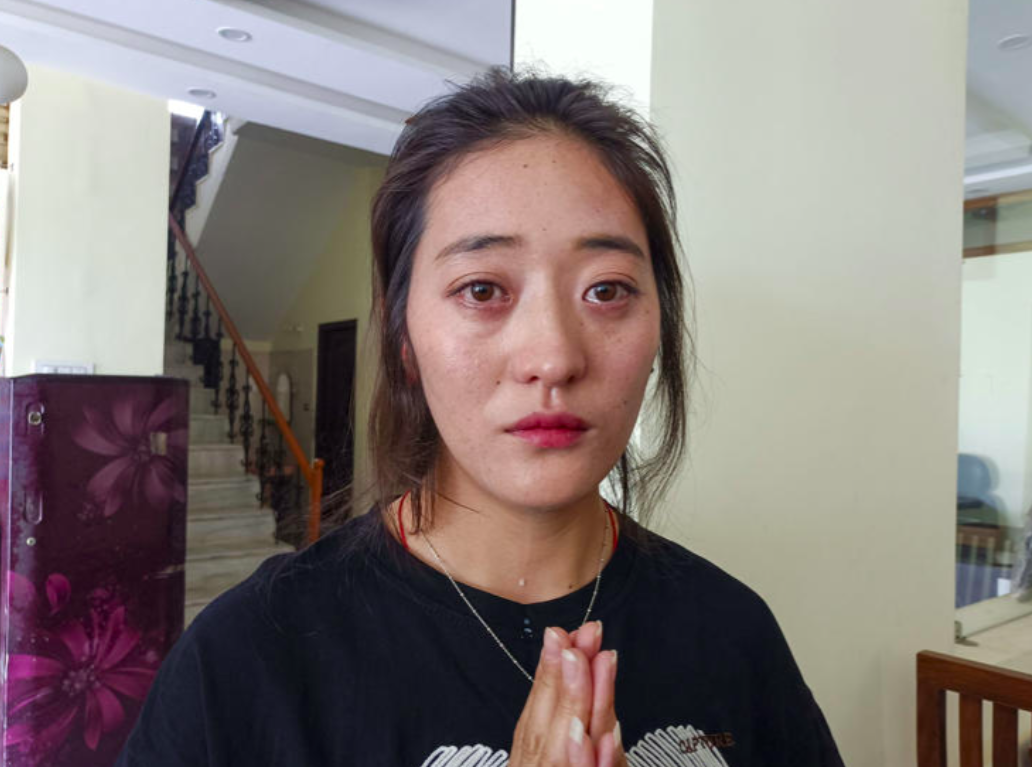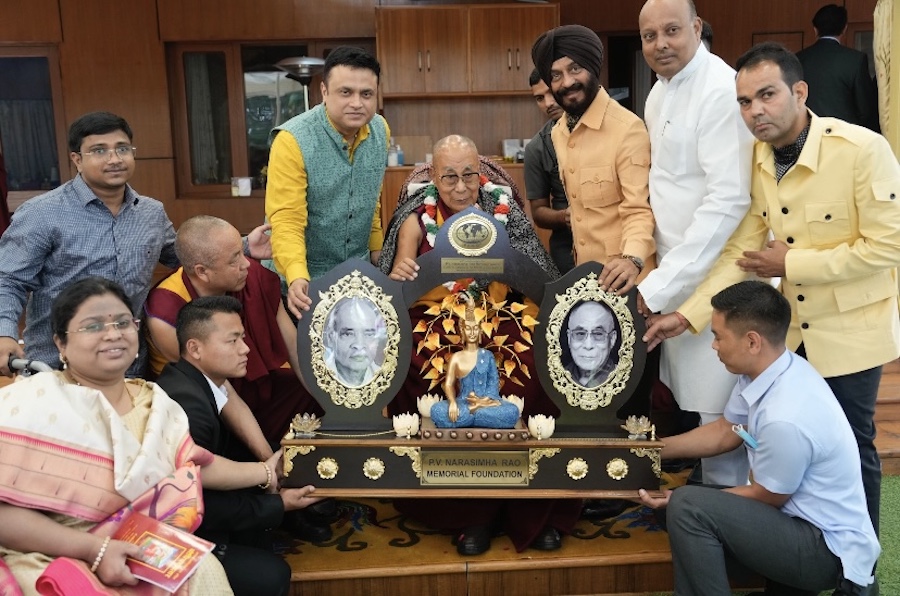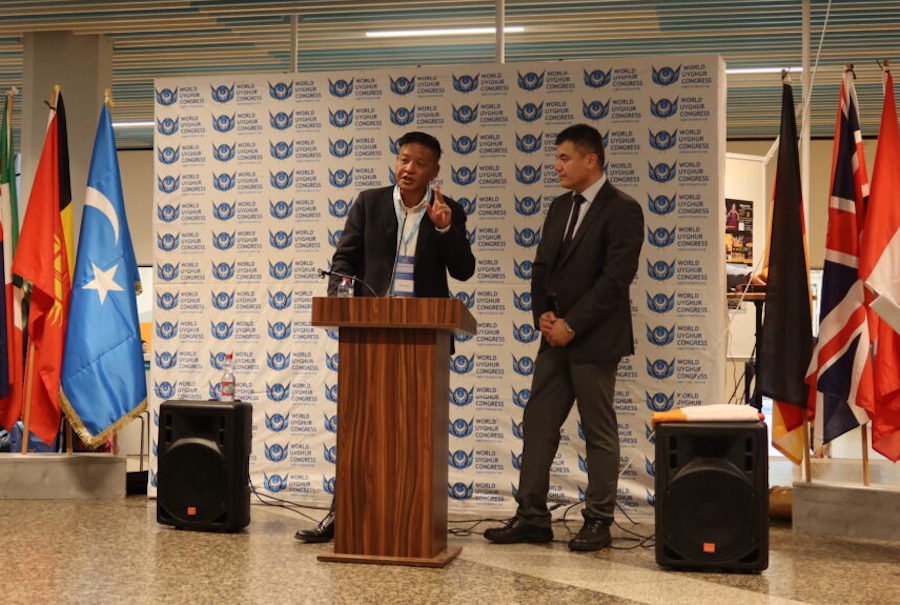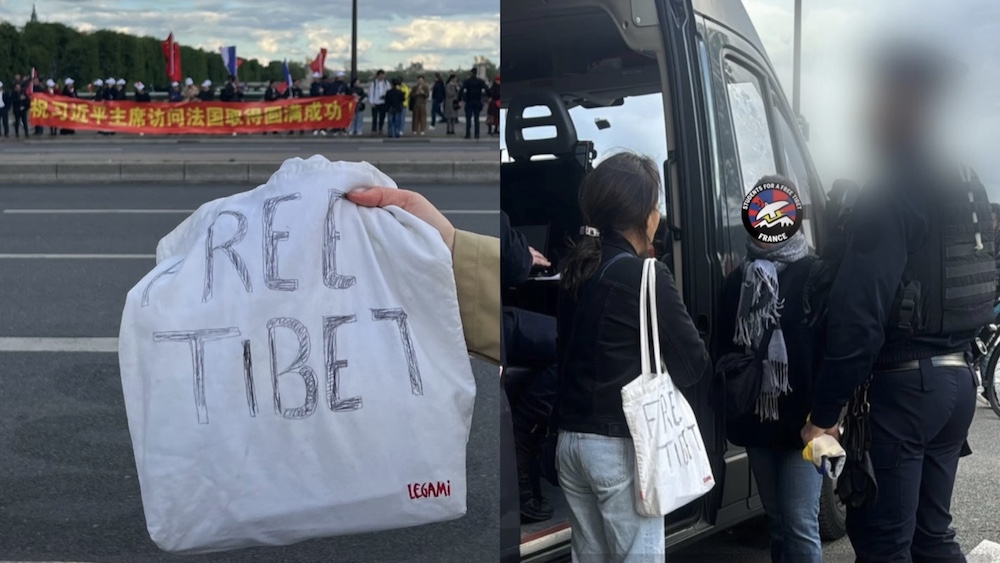Bylakuppe, January 7 – The fifth and the last day of the Tibetan Youth Leadership Training began with Mr. Tenpa Tsering, former Kalon, taking the first two sessions on the topics – 1) Tibet: The World and the UN and 2) Role of Tibetan Youth in the Freedom Struggle. Reflecting on his past experiences of actively working in the Tibetan community in various capacities for almost three decades, Mr. Tenpa Tsering gave a wide perspective on the status that Tibet as an issue demands in the UN and international politics. He spoke on the influential presence that China as a Veto nation and a super economy enjoys and focused on how to approach and tackle the factors going against our cause. Himself being a former central executive member of the TYC and a staunch supporter, he gave a lasting impression on the active role that Tibetan youth as unofficial ambassadors of Tibet can play in their colleges and cities.
The group leaders and secretaries of the respective groups took the centre stage in the third session and gave their presentation on the three questions that had been put unto them for debate and discussion. Projecting their views on the questions, many came up with new, practical and credible ideas. The sessions on Group discussion and presentation proved to be a healthy exercise for exchange of ideas amongst the participants themselves and served the purpose of providing the opportunity for the participants to not only listen but also to speak and voice their ideas and arguments.
‘Organisational Transformation’ being a very relevant and desired subject, Mr. Kalsang Phuntsok Godrukpa expressed his views on the need of the concept in the growth of an organisation. Citing various examples he said that at various stages in the growth of an organisation there is a tendency of it becoming redundant and ordinary which in turn hampers its functioning and reliability. Mr. Kalsang Phuntsok said that the greatest responsibility at present is to preserve the Tibetan culture and identity and to continue the freedom struggle with a rejuvenated effort.
Mr. Ravi Nair, Director of South Asian Human Rights Documentation Centre and an expert on UN mechanism and human rights issues, engrossed the participants on the topics – 1) Introduction to the UN Convention against torture and other cruel inhuman or degrading treatment or punishment and introduction to the international movement on economic, social and cultural rights and mechanism for enforcement. – A case study of Tulku Tenzin Delek and 2) Introduction to the Human Rights agencies and procedure with special emphasis on convention on the elimination against women and the rights if the child and mechanism for their enforcement. – A case study of Panchen Lama and Phuntsok Nyidrol. Mr. Ravi Nair started his deliberation on the changing political, social and economical scenarios in China , which in turn, he said, has created aspiration and appeal for democracy amongst the Chinese masses. He said that China is presently facing a great contradiction and dilemma over how much democracy and power to be given to the Chinese people. Citing examples of Armenia, Estonia , Latvia etc. he suggested that Tibet should keep all options open and be prepared to exploit the advancing opportunities to the hilt. He said that unlike a few years back, China today is prepared and selectively engaged in human rights issues thus making it obvious for the Tibetans to work harder and more systematically with a farsighted plan. He guided the participants on the techniques of ‘paper guerilla warfare’ and on the principles of lobbying for Tibet in the UN and offered various propositions for activities like forming Environmental NGOs and Sports Club in Tibet, innovation with technology like creating web radios and harvesting e-mail addresses for dissemination of information on Tibet. Mr. Ravi Nair cautioned the participants that Tibetans today are facing a great threat of cultural globalisation and further advised on the importance of preserving one’s culture and identity for attaining Freedom.
The dimmed hall and the resilient ambience belied a closing ceremony of the major workshop for the leaders of future Tibet at Deckyi Larsoe community hall in South India.
In hushed tones and heightened anticipation, the participants and the guests alike were drowned in the air of spiritual speculation and commitments, as the President made a “call for duty” in the form of a sacred oath amidst hundreds of fellow compatriots.
The extraordinaire evening was marked with series of thought-provoking speeches by the President, Kasur Tenpa la and Chitue Karma Chophel la, followed by equally heart rendering oath taking session by the youth.
The session reached the crescendo when a Ladakhi volunteer- Dhondup Tsering, a Masters student from Baroda University, declared with bravado, “I am a free man, but I promise that for the sake of Tibetan freedom, I am ready even to sacrifice my life.” The session came to a close, with similar zestful revelations from the future leaders, assuring that the TIBETAN YOUTH LEADERSHIP TRAINING of the Tibetan Youth Congress has inspired and enthused in the participants – the spirit of relentless contribution and sacrifice for the Freedom of Tibet.
For contact at Bylakuppe:
Mr. Kalsang Phuntsok, President Mob: 9816063228/9891022587/9448026211









